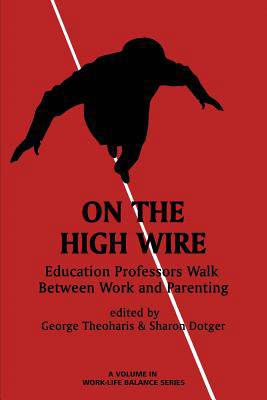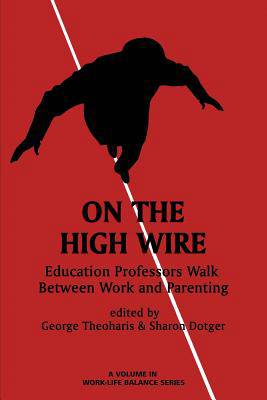
- Afhalen na 1 uur in een winkel met voorraad
- Gratis thuislevering in België vanaf € 30
- Ruim aanbod met 7 miljoen producten
- Afhalen na 1 uur in een winkel met voorraad
- Gratis thuislevering in België vanaf € 30
- Ruim aanbod met 7 miljoen producten
On the High Wire
Education Professors Walk Between Work and Parenting
George Theoharis, Sharon DotgerOmschrijving
The purpose of the work/life balance series is to highlight particular challenges that higher education faculty face as they participate in the demands of the academy and try to prevent those demands from invading their personal lives. On The High Wire looks at a specific subset of university faculty, education faculty with school-aged children, and the specific professional/personal balance these faculty need to find. The title On the High Wire suggests the precarious nature of the "walk" for education faculty who are parents of school-aged children. We know that our identities are central to how we experience the world and how the world reacts to us. This reality is clearly visible in this book. These multiple identities and roles come into conflict at multiple points and in different ways. This book explores these identities and roles through autoethnographic accounts written by varied education faculty in order to make these tensions visible for the field to address.
Specificaties
Betrokkenen
- Auteur(s):
- Uitgeverij:
Inhoud
- Aantal bladzijden:
- 322
- Taal:
- Engels
- Reeks:
Eigenschappen
- Productcode (EAN):
- 9781623969271
- Verschijningsdatum:
- 19/02/2015
- Uitvoering:
- Paperback
- Formaat:
- Trade paperback (VS)
- Afmetingen:
- 156 mm x 234 mm
- Gewicht:
- 453 g

Alleen bij Standaard Boekhandel
Beoordelingen
We publiceren alleen reviews die voldoen aan de voorwaarden voor reviews. Bekijk onze voorwaarden voor reviews.











